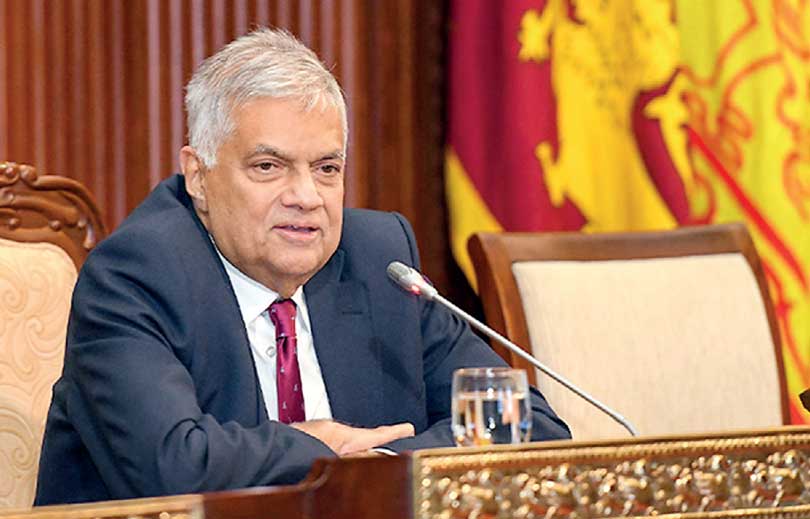Monday Feb 16, 2026
Monday Feb 16, 2026
Friday, 12 July 2024 00:55 - - {{hitsCtrl.values.hits}}

President Ranil Wickremesinghe
 Unsurprisingly the SC has dismissed the Fundamental Rights petition requesting the Supreme Court to hold that the President has a term of six years, in limine. Reportedly, the SC has found no merit in the petition.
Unsurprisingly the SC has dismissed the Fundamental Rights petition requesting the Supreme Court to hold that the President has a term of six years, in limine. Reportedly, the SC has found no merit in the petition.
If the term of office of the President had been interpreted to be six years, as the petitioner had sought, it would no doubt have been expressly in violation of the Constitutional provisions, limiting the President’s term to five years, introduced by the 19th Amendment.
What the petitioner had pleaded for was sort of a judicial review of post-enactment legislation by the Supreme Court, a power which the SC is not vested with under the Constitution of Sri Lanka. It could hardly be surmised that the SC could arrogate to itself a power that is not vested in it by invoking any other doctrines of law, including inherent jurisdiction. However, the power of interpretation of the Constitution that lies with the SC is a power that it can use as it may deem fit.
It appears that the petitioner had contended in his petition that the provisions brought into the Constitution through the 19th Amendment, limiting the President’s term to five years, violated the entrenched Constitutional provision, Article 3.
Article 3 of the Constitution states:
“In the Republic of Sri Lanka, sovereignty is in the PEOPLE and is INALIENABLE. Sovereignty includes the powers of government, fundamental rights and the franchise.”
The petitioner’s intent may be that if the SC held that the provisions introduced by the 19th Amendment are null and void in light of the above contention, the original Constitutional provisions pertaining to that subject would apply, and read with Article 83(b) of the Constitution, the President would stay on in office for one more year.
Article 83, which was left untouched by the 19th Amendment, suggests that when it is sought to extend the term of office of the president BEYOND six years only, a Bill to that effect should be adopted by a two-third majority of Parliament and approved by the people at a referendum.
So, the contention made by pro-government parties in the media and at public events was that if the term of office of the President was to be extended by one year (that is to say, from 5 years to 6 years), there would be no necessity for a referendum.
Now that the SC has dismissed the petition in limine, it is possible that a legal position built upon Articles 83(b), 3, 4, etc. of the Constitution could be developed, and a Bill could be initiated to achieve that objective. However, time is not so much on the Government’s side if this matter is to be seriously taken forward.
In any case, when such a Bill is sought to be introduced by the Government, it is the SC which would determine whether it should be approved by the people at a referendum in addition to its adoption by a two-third majority of Parliament, or whether adoption by a two-third majority of Parliament would suffice.
It is dicey. It may go either way. But one doesn’t know whether there is enough time for such a drastic move if it is to be ever taken.